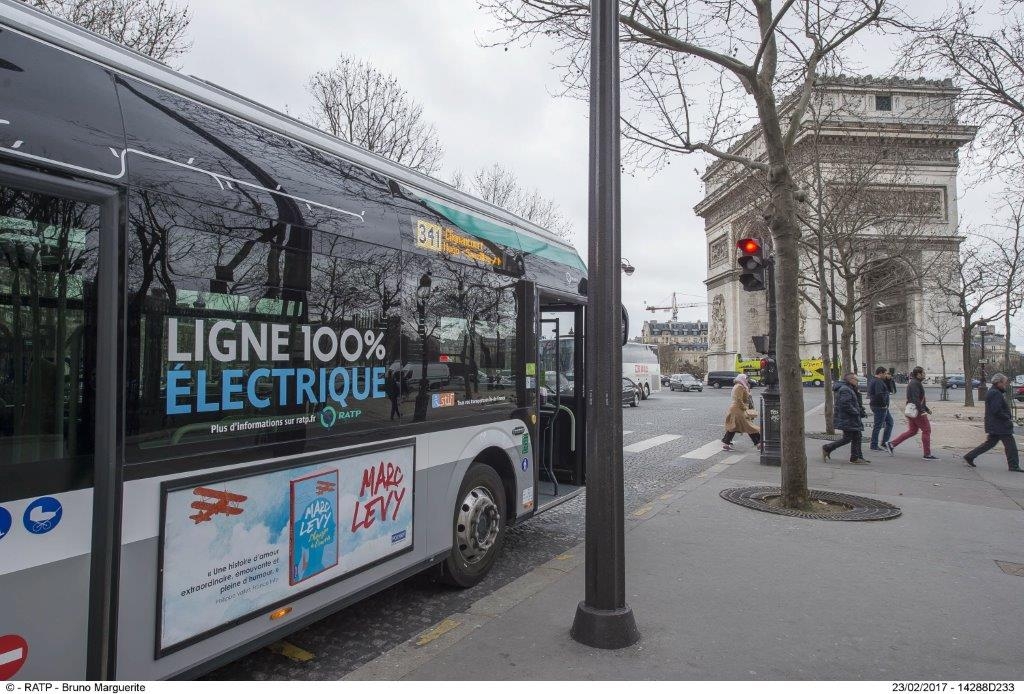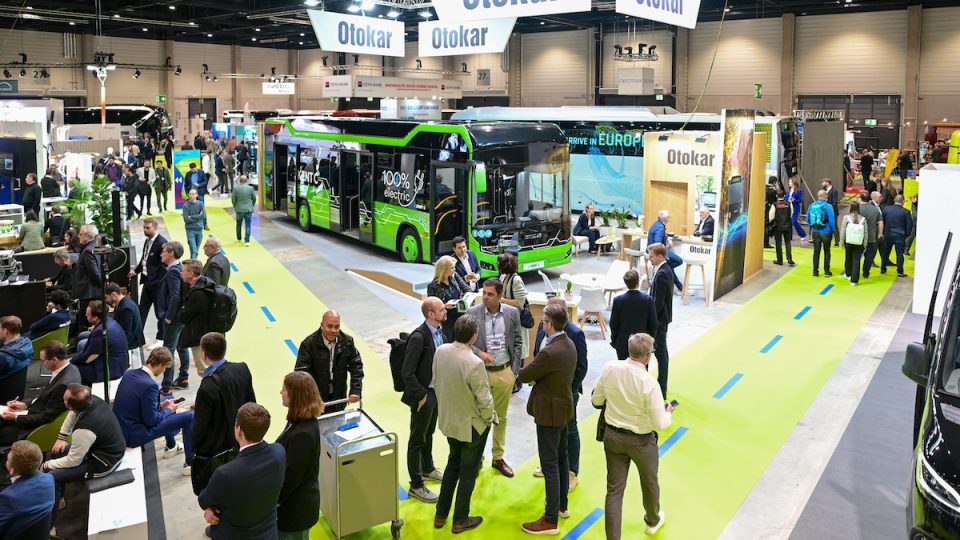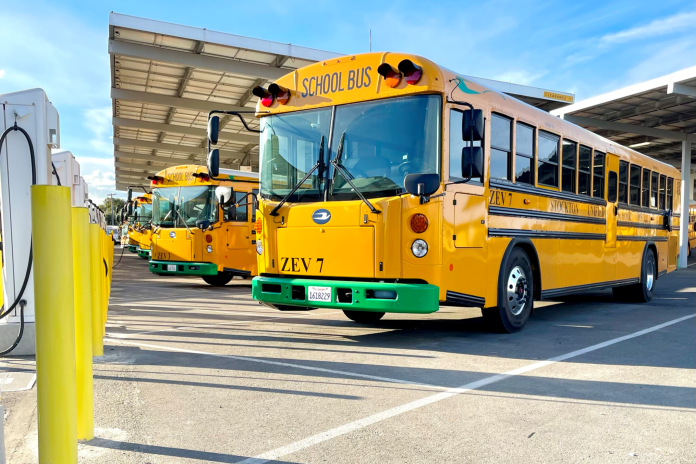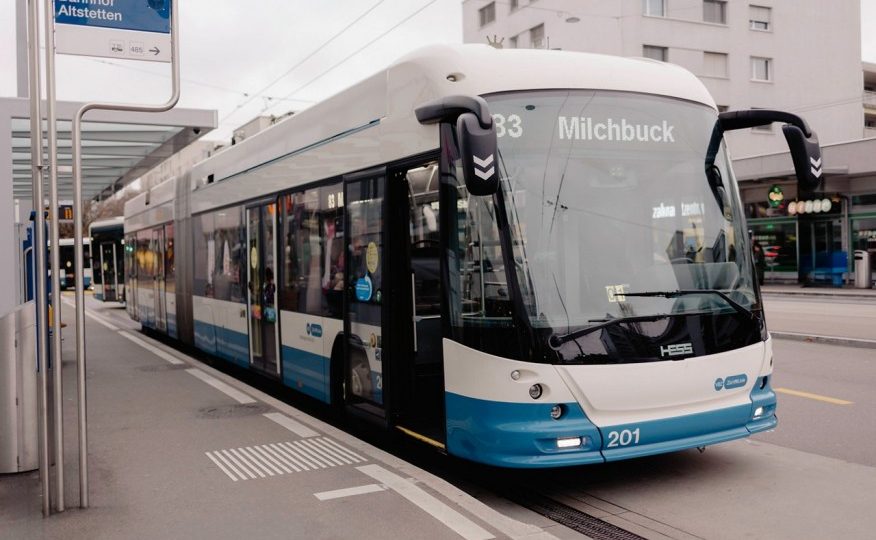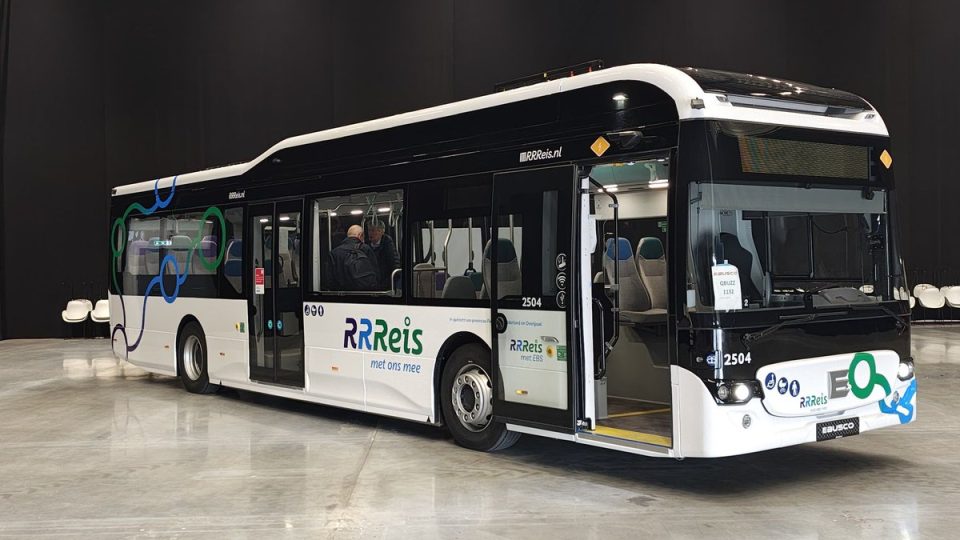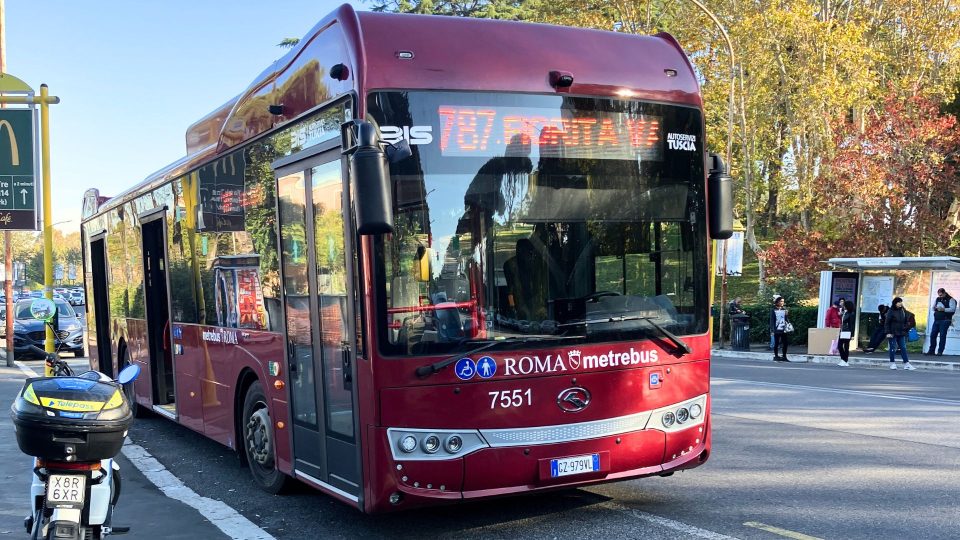RATP on the way to a 2025 clean fleet in Paris. Interview with Nicolas Cartier
RATP has a fleet of 4,700 buses in Paris and is pursuing the target of converting the whole fleet to low and zero emission buses by 2025. In that year, two thirds of the fleet must be electrically powered, one third biogas powered. The effort realized by RATP with public transport authority Ile-de-France Mobilités involves […]
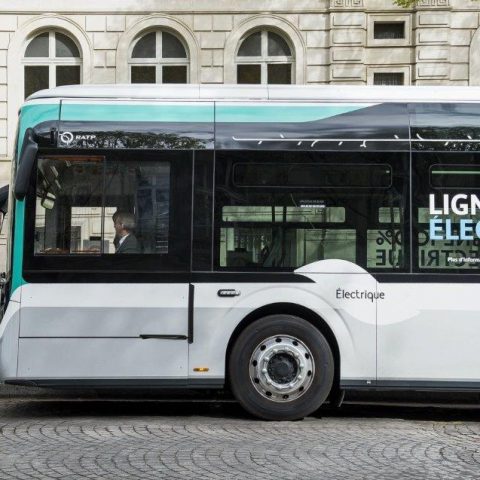
RATP has a fleet of 4,700 buses in Paris and is pursuing the target of converting the whole fleet to low and zero emission buses by 2025. In that year, two thirds of the fleet must be electrically powered, one third biogas powered. The effort realized by RATP with public transport authority Ile-de-France Mobilités involves also the depots. In the framework of this program, in April this year, a tender for up to 800 electric buses has been awarded.
Technology is changing, environmental awareness is driving political agenda and public transport, in the main European cities, is on the way to a paradigm shift. Paris is among the protagonists of this scenario.
Sustainable Bus met Nicolas Cartier, RATP general manager of transport system department in Paris and director of the Bus2025 project.
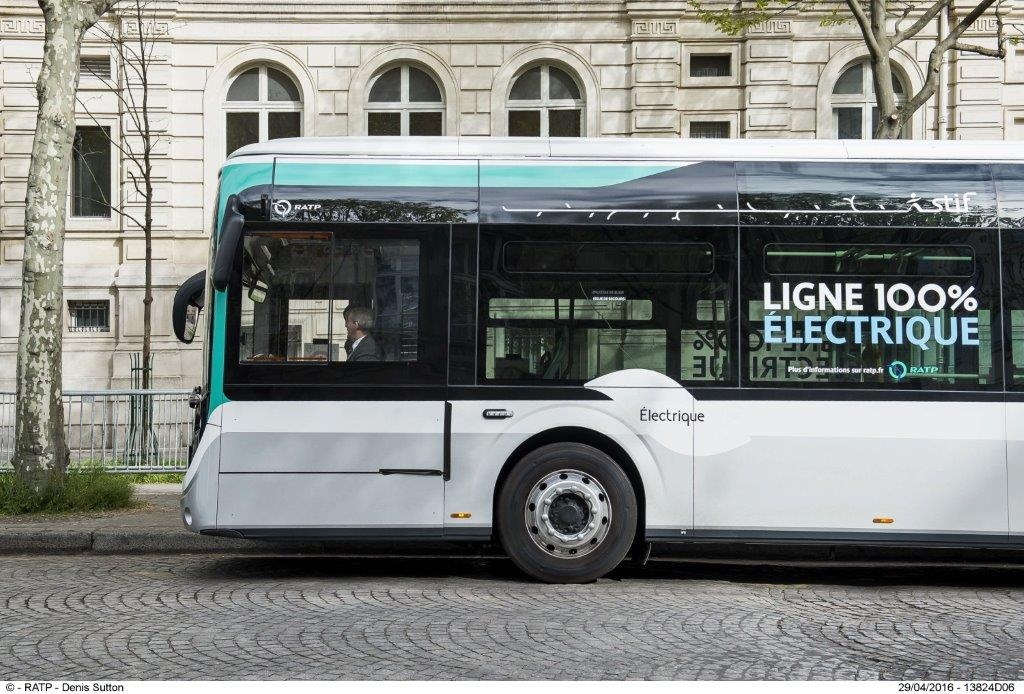
Mr. Cartier, may you provide an overview of RATP ‘Bus2025’ project for Paris?
«Our fleet is composed by 4.700 buses operated on 25 depots. Our goal is to convert all the 25 depots: eight of them will be adapted to CNG operations and 17 will become electric bus depots. Works will be concluded by 2024-25. At that moment we will have only clean buses in the fleet: two thirds will be electric and hybrid buses, one third CNG buses (powered with biogas). At this moment we have finished the works in one CNG depot. And we have completed half of the works in two electric bus depots».
RATP has been operating full electric standard buses in Paris since 2016. Which lessons have you learnt from the first steps of the plan?
«We had good feedbacks from customers and drivers so far, this technology is very appreciated. Technically, what we see is that batteries are actually very good: to date, we haven’t had any issue of range decreasing. We have to be very careful, with regards to range, to the management of electric heating. We can gain several tens of kilometres just managing electric heating in a better way. Another lesson we have learnt is about interoperability between chargers and buses: at the beginning we used to buy buses with their device, now we buy them separately, thus we must be careful to interoperability».
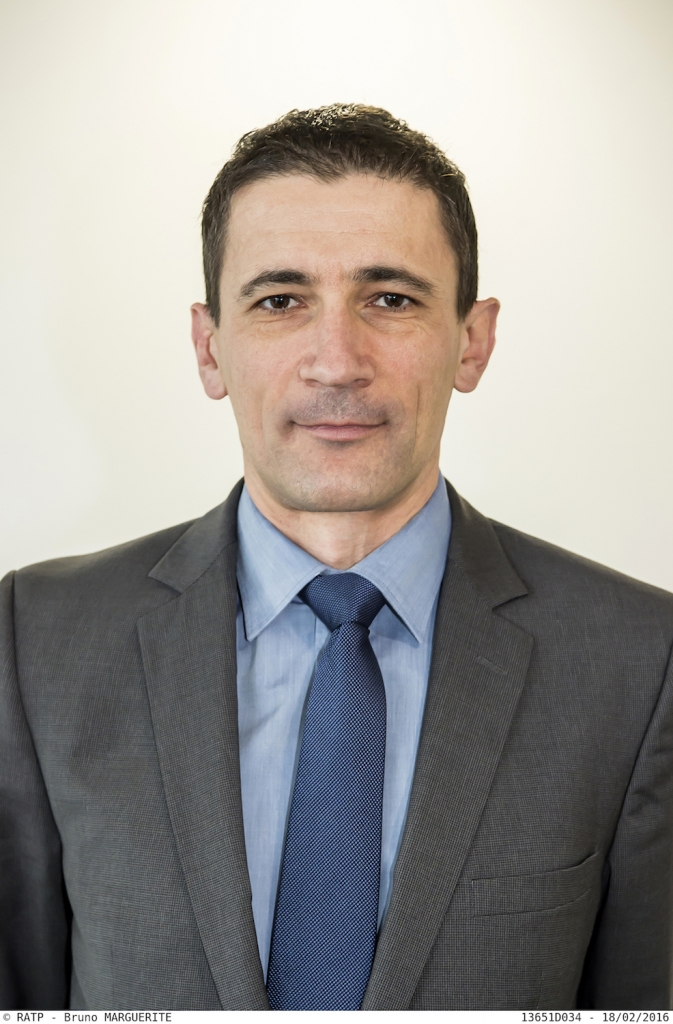
Following the first batch of vehicles delivered in 2016, RATP has so far issued two large tender on electric buses. The first was awarded in March 2018 to Heuliez and Bollorè. The second was awarded to Heuliez, Bollorè and Alstom in April 2019, for a maximum amount of 400 million euros. How are scheduled the deliveries?
«We are now taking delivery of the first buses from the tender awarded in March 2018. This week we have received the first Bollorè buses, and Heuliez vehicles will follow in a few days. The maximum amount of the tender is 40 million euros, twenty for each of the two manufacturers. With regards to the second tender, we expect the first deliveries from each provider to begin next year».
How many RATP routes in Paris city center, today, could actually be operated via full electric buses, considering range and stopover times requested by the models now available?
«At this moment our standard electric buses have an average range of 190 km. We think that this is enough for most of RATP routes in Paris. We just had to adapt a few lines».
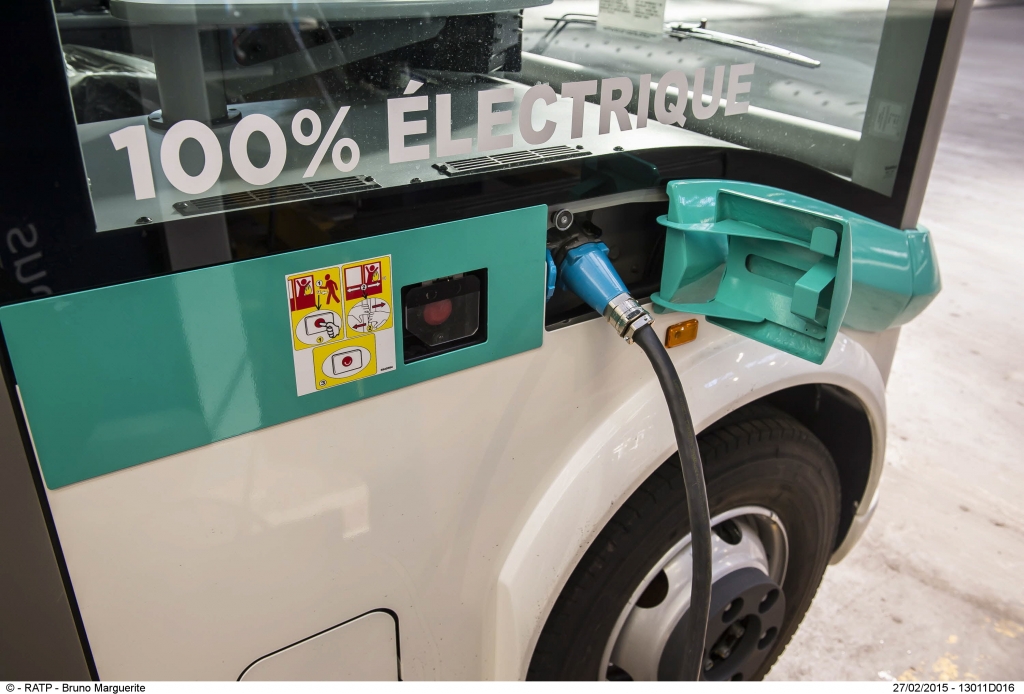
Are you replacing diesel buses with electric buses one to one or, as usually happen, are you going to need more electric buses than conventional ones?
«We are replacing the vehicles one to one».
Introducing large fleets of electric buses implies changes in the structure of a public transport company. How is RATP changing, in terms of organization and skills, to get ready for the challenge?
«We had several changes. We began working with our drivers. Then, we had more skills to develop with regards to maintenance, altough hybrid bus maintenance, that we already did, is quite similar to that of full electric buses. But mostly, we had to implement our skills when it comes to schedule lines».
Will RATP realize the maintenance on electric buses in house? Based on your experience, which is the maintenance costs of electric buses compared to diesel buses?
«Yes, we do everything in our depots. All the maintenance is done by ourselves. We expect the ordinary maintenance costs of electric buses to be 20 per cent lower compared to diesel. Today we have electric buses in four depots and more than 100 people are working both on diesel and electric buses».
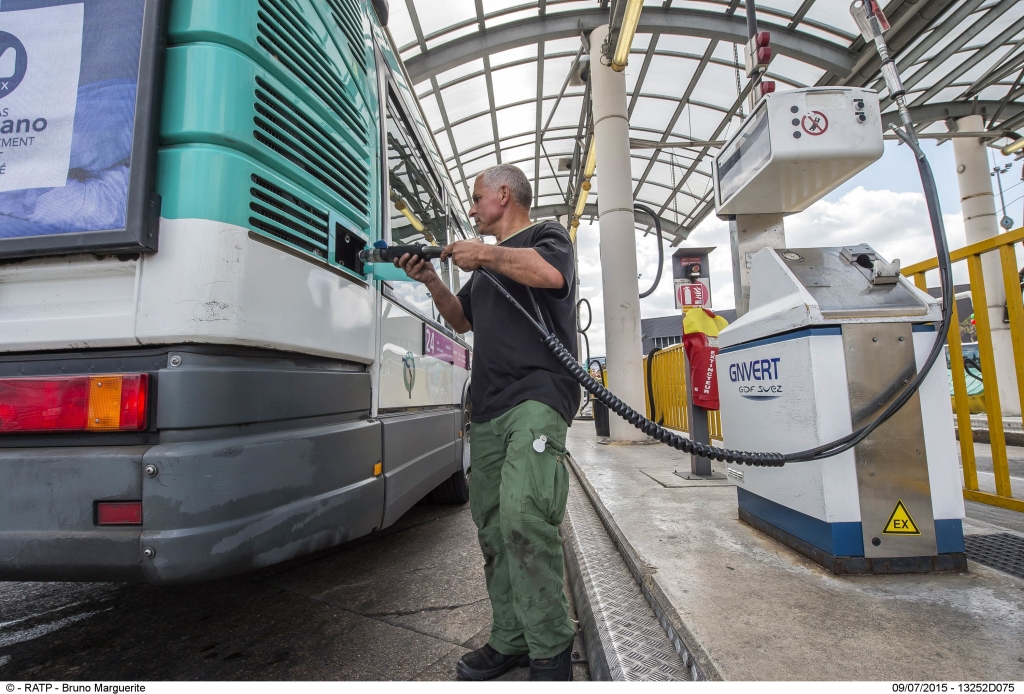
How much the works of adapting depots to electric and CNG buses will cost?
«It’s a very important effort. The total cost of adapting the 25 depots will be over 600 million euros. Works will cost between 20 and 30 million for each depot, with electric bus depots to be more expensive than CNG».
Electric buses cost on average the double than conventional drive buses. Which business models are RATP and Ile-de-France Mobilités using to finance the transition?
«The only new financial initiative we took was issuing green bonds».
Still on the financial topic: as a result of the higher cost of electric buses, if the money invested won’t increase, the result could be an increase in the average age of the fleet. How do you see this scenario?
«At this moment, as we plan to buy electric buses, the age is going to remain the same. It will be decided by our authority whether the situation will chance, it’s up to them. At the moment we are keeping the renewal rate at the same level. We keep buses until they are 15 years old (10 years for 12 meter buses). The average age of RATP fleet in Paris is around 8 years».
Is RATP going to introduce also mild hybrid buses?
«No, we are not. Actually, we won’t buy any hybrid bus in the future. With our last plug-in hybrid order we will reach 1,000 hybrid buses in the fleet, when deliveries will be completed. From now on, we will buy only full electric buses and CNG buses».
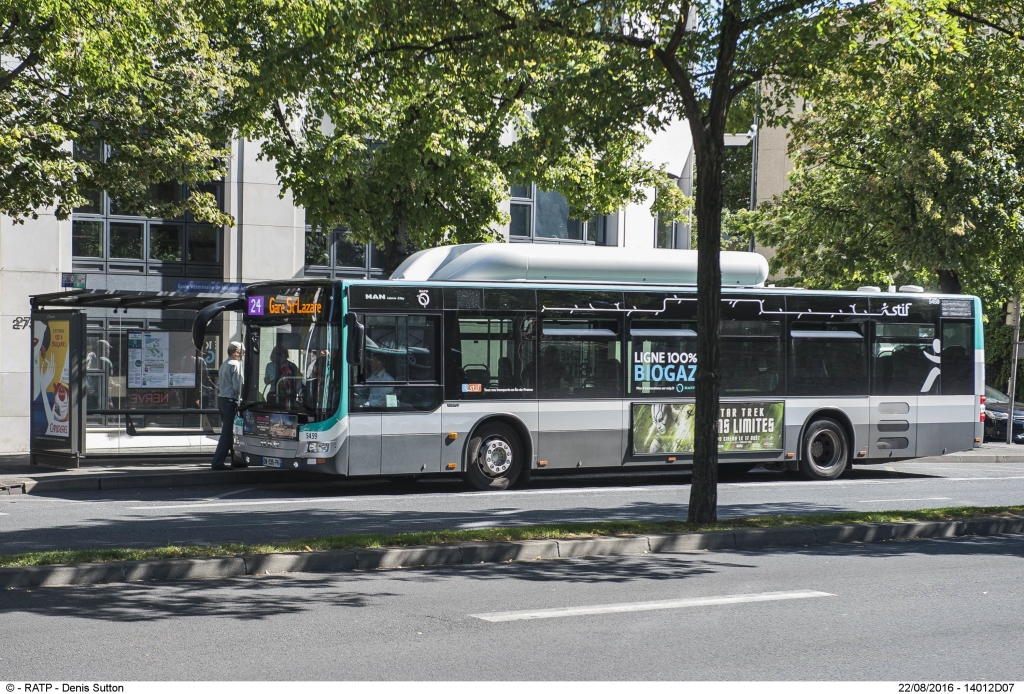
One third of the fleet, according to the plan, must be biogas powered by 2025. Which routes are going to be operated with biogas buses?
«We decided depot by depot. And it is important to mention that range is just one issue, not the only one. It is also an issue of neighborood. There are security rules that forbid to place a CNG depot close to the center of the city. So our choice is a compromise between range and feasibility of the depot in that area».
Do you see biogas as a ‘bridge’ solution while expecting improvements in electric bus specifications or do you think they could be a long term solution?
«We think that at this moment it’s a good solution. But rules can change. At this moment CNG seems to be a good solution for the long term».
RATP announced a pilot with the Solaris Urbino hydrogen. Which is the place of fuel cell vehicles in RATP future plans?
«It’s a first trial. We rent the bus, we haven’t bought any hydrogen bus and infrastructure. We hope we will be able to build a few hydrogen lines in the short term future. Of course it has to be done in agreement with our authority. A good option could be to have just between 20 and 25 hydrogen buses. However, our main strategy is focused on battery electric and CNG buses. Fuel cell could be complementary to this strategy».
Sustainability is a quite wide concept and it could be reductive to link it only to the topic of energy transition. Which are the other tools that RATP is adopting to make public transport more sustainable and user friendly?
«We have many works going on. One of the question is: “How we can stay in the city center with lower impact”? It’s important to integrate our depots and workshops, being able to integrate infrastructure in the city. We have another project underway: we plan to integrate solar cells in our buildings. Electricity won’t be used to power buses, but to produce a part of our needs, in order to lower our electricity demand».
